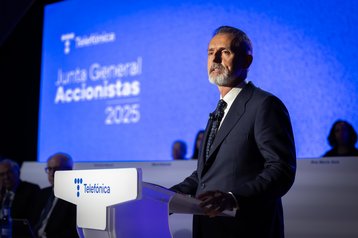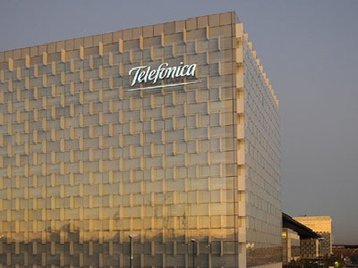Telefónica's CEO Marc Murtra has once again reiterated calls for consolidation within Europe's telecoms sector.
Murtra, who replaced long-standing CEO José María Álvarez-Pallete in the hotseat earlier this year, made the comments during the carrier's AGM held last week.
The AGM also saw Telefónica's shareholders ratify Murtra's appointment.
Murtra wasted no time in once again calling for consolidation, as he previously did during this year's Mobile World Congress event.
"Our opinion is that the high level of fragmentation in the telecommunications sector in Europe, unique in the world, and the excessive regulation, also unique in its intensity, have uprooted the possibility that European telcos could have been technological giants capable of competing with their US and Chinese counterparts, ensuring Europe’s sovereignty and productivity," said Murtra.
In order to compete with the US and China, Murtra claims that consolidation is necessary.
He noted that consolidation will pave the way for European telcos to invest, innovate, and attract talent.
According to Murtra, this consolidation "must begin within countries, otherwise it will not make economic sense." This will generate more profit, allow for better deployment of advanced networks, and "create sufficient technological capacity to reinforce our strategic autonomy, increase our productivity, and improve the lives of our citizens," the executive claimed.
"Europe, Europe, and Europe"
Murtra also provided an outline for what the company's strategy will look like, noting that it will present a strategic review before the end of the year.
"Our review will be ambitious, it will be carried out with analysis and with strict professionalism," he said, explaining that the carrier will work towards five principles.
The five principles are changes in Europe, ensuring customers are the center of everything, technology and operational excellence as the pillars of Telefónica’s business, the company acting with disciplined industrial logic, and the creation of value for customers, employees, and shareholders.
As such, Murtra states that Telefónica is working on three priorities, with the first centered around the company’s efforts and knowledge.
"Our priority will be Europe, Europe, and Europe; we will maintain our leadership position in Brazil as a core market, and we will focus on what we know how to do as an industrial operator," said the company’s chairman.
"We consider intra-market consolidations to be economically profitable. There will be no European consolidation, nor will we consolidate without prior intra-market consolidation and without economic rationality."
Telefónica operates in its home market, Spain, and has held a sizeable chunk of the telecoms market in the UK with Virgin Media O2, and in Germany with O2 Deutschland.
The carrier has been actively looking to reduce its presence in Latin America since 2019, and this week sold its bankrupt Peruvian unit for less than $1 million through its Latin American subsidiary.
This strategy has ramped up in recent months, with the company striking a deal last month to sell its Colombian unit to Millicom International Cellular for $400 million.
Millicom previously acquired Telefónica's Panamanian, Costa Rican, and Nicaraguan mobile units in 2019 for a combined $1.6 billion.
In February, Telefónica struck a deal to sell its Argentinian unit to Telecom Argentina for $1.245 billion, while it has also stepped up plans to sell its Mexican unit.
Other priorities include maintaining financial discipline while simplifying the company and operating under the parameters of technological and operational excellence.
During the AGM, shareholders also ratified the appointment of Emilio Gayo as executive director, Carlos Ocaña and Olayan M. Alwetaid as proprietary directors, and Ana María Sala as independent director.








